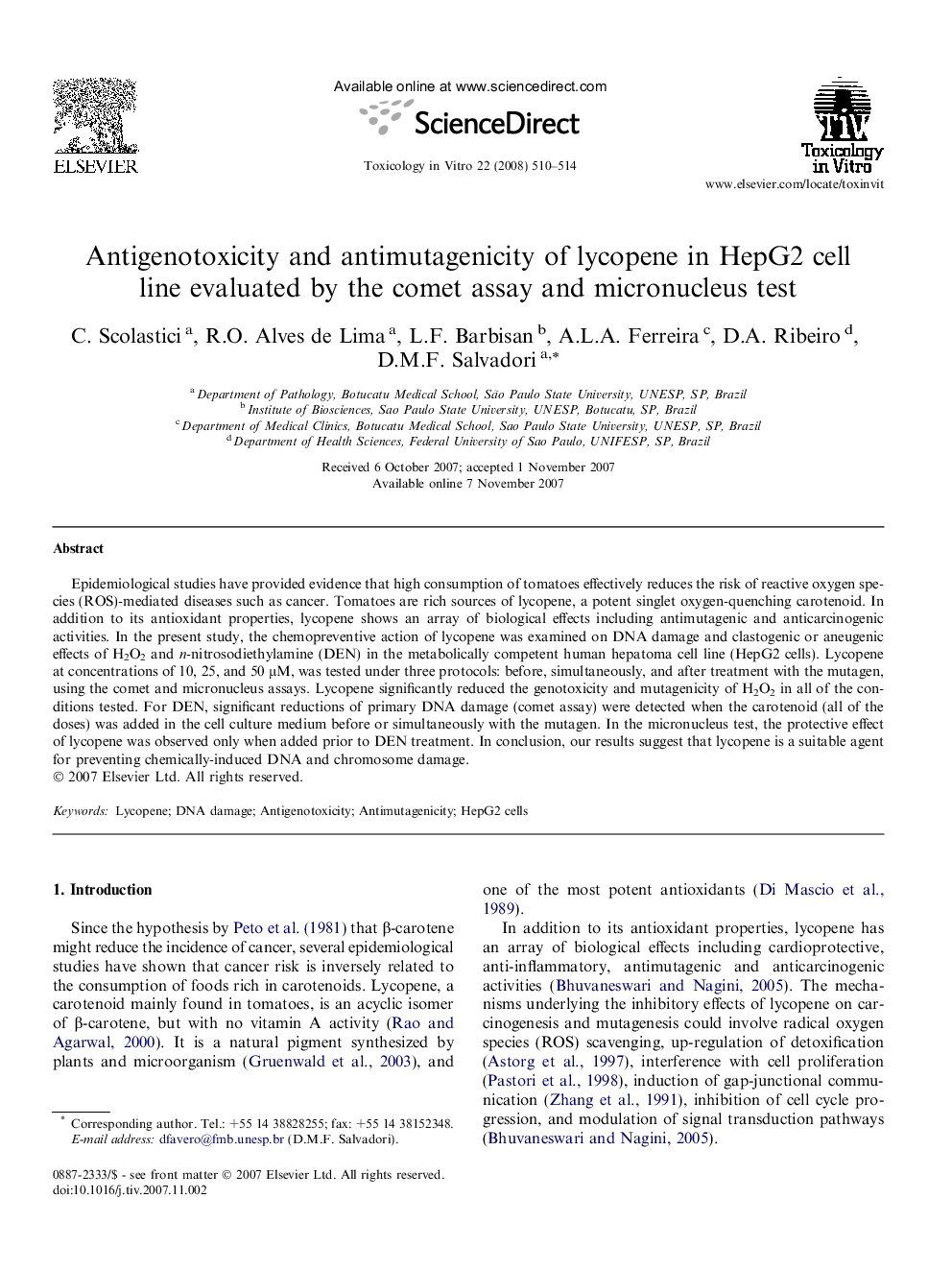| کد مقاله | کد نشریه | سال انتشار | مقاله انگلیسی | نسخه تمام متن |
|---|---|---|---|---|
| 2603509 | 1133822 | 2008 | 5 صفحه PDF | دانلود رایگان |

Epidemiological studies have provided evidence that high consumption of tomatoes effectively reduces the risk of reactive oxygen species (ROS)-mediated diseases such as cancer. Tomatoes are rich sources of lycopene, a potent singlet oxygen-quenching carotenoid. In addition to its antioxidant properties, lycopene shows an array of biological effects including antimutagenic and anticarcinogenic activities. In the present study, the chemopreventive action of lycopene was examined on DNA damage and clastogenic or aneugenic effects of H2O2 and n-nitrosodiethylamine (DEN) in the metabolically competent human hepatoma cell line (HepG2 cells). Lycopene at concentrations of 10, 25, and 50 μM, was tested under three protocols: before, simultaneously, and after treatment with the mutagen, using the comet and micronucleus assays. Lycopene significantly reduced the genotoxicity and mutagenicity of H2O2 in all of the conditions tested. For DEN, significant reductions of primary DNA damage (comet assay) were detected when the carotenoid (all of the doses) was added in the cell culture medium before or simultaneously with the mutagen. In the micronucleus test, the protective effect of lycopene was observed only when added prior to DEN treatment. In conclusion, our results suggest that lycopene is a suitable agent for preventing chemically-induced DNA and chromosome damage.
Journal: Toxicology in Vitro - Volume 22, Issue 2, March 2008, Pages 510–514